TREATMENT FOR INSOMNIA
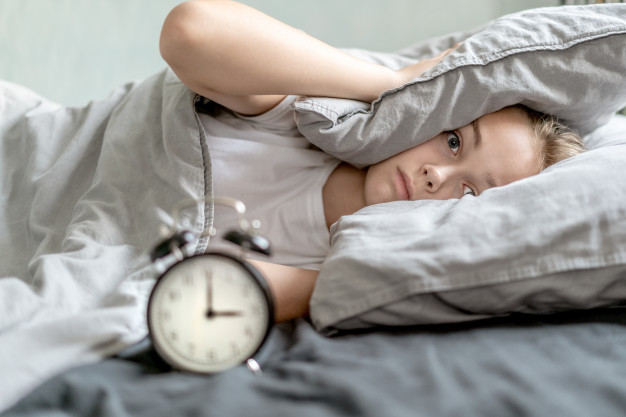
WHAT IS INSOMNIA?
Insomnia is a common sleep disorder that can make it hard to fall asleep, hard to stay asleep, or cause you to wake up too early and not be able to get back to sleep. You may still feel tired when you wake up. Insomnia can sap not only your energy level and mood but also your health, work performance and quality of life.
How much sleep is enough varies from person to person, but most adults need seven to eight hours a night.
At some point, many adults experience short-term (acute) insomnia, which lasts for days or weeks. It's usually the result of stress or a traumatic event. But some people have long-term (chronic) insomnia that lasts for a month or more. Insomnia may be the primary problem, or it may be associated with other medical conditions or medications.Insomnia creates major distress or functional difficulties in a person’s life. It can lead to issues such as:
- daytime sleepiness and lethargy
- a general feeling of being mentally and physically unwell
- mood changes, irritability, and anxiety
TYPES OF INSOMNIA
Insomnia can be classified by duration:
- Acute, transient insomnia is a short-term problem.
- Chronic insomnia can last for months or years.
Doctors also classify it by cause:
- Primary insomnia is an issue by itself.
- Secondary insomnia is a result of another health issue.
In addition, they classify it by severity:
- Mild insomnia involves a lack of sleep that leads to tiredness.
- Moderate insomnia may affect daily functioning.
- Severe insomnia has a significant impact on daily life.
WHAT CAUSES INSOMNIA?
PRIMARY INSOMNIA (ACUTE)
- Stress related to big life events, like a job loss or change, the death of a loved one, divorce, or moving
- Things around you like noise, light, or temperature
- Changes to your sleep schedule like jet lag, a new shift at work, or bad habits you picked up when you had other sleep problems
- Using devices with screens before bed can cause a loss of sleep in young people and adults.
SECONDARY INSOMNIA (CHRONIC)
- Mental health issues like depression and anxiety
- Medications for cold, allergies, depression, high blood pressure, and asthma
- Pain or discomfort at night
- Caffeine, tobacco, or alcohol use
- Hyperthyroidism and other endocrine problems
- Other sleep disorders, like sleep apnea or restless legs syndrome
SYMPTOMS
- daytime fatigue or sleepiness
- Mood changes
- irritability, depression, or anxiety
- gastrointestinal symptoms
- low motivation or energy
- poor concentration and focus
- a lack of coordination, leading to errors or accidents
- worry or anxiety about sleeping
- using medication or alcohol to fall asleep
- tension headaches
- difficulty socializing, working, or studying
- waking too early in the morning
- unrefreshing sleep
- trouble falling or staying asleep
- difficulty concentrating on tasks during the day.
Our Branches
Valasaravakkam
Kotturpuram
DIAGNOSIS
Depending on your situation, the diagnosis of insomnia and the search for its cause may include:
- Physical exam. If the cause of insomnia is unknown, your doctor may do a physical exam to look for signs of medical problems that may be related to insomnia. Occasionally, a blood test may be done to check for thyroid problems or other conditions that may be associated with poor sleep.
- Sleep habits review. In addition to asking you sleep-related questions, your doctor may have you complete a questionnaire to determine your sleep-wake pattern and your level of daytime sleepiness. You may also be asked to keep a sleep diary for a couple of weeks.
- Sleep study. If the cause of your insomnia isn't clear, or you have signs of another sleep disorder, such as sleep apnea or restless legs syndrome, you may need to spend a night at a sleep center. Tests are done to monitor and record a variety of body activities while you sleep, including brain waves, breathing, heartbeat, eye movements and body movements.
Your doctor will ask questions about your:
- medical conditions
- social environment
- psychological or emotional condition
COMPLICATIONS
Sleep is as important to your health as a healthy diet and regular physical activity. Whatever your reason for sleep loss, insomnia can affect you both mentally and physically. People with insomnia report a lower quality of life compared with people who are sleeping well.
Complications of insomnia may include:
- Lower performance on the job or at school
- Slowed reaction time while driving and a higher risk of accidents
- Increased risk and severity of long-term diseases or conditions, such as high blood pressure and heart disease
- anxiety
- depression
- stroke
- asthma attacks
- seizures
- weak immune system
- obesity
- diabetes mellitus
- Lower your sex drive
- affect your memory
RISK FACTORS
Nearly everyone has an occasional sleepless night. But your risk of insomnia is greater if:
- You're a woman. Hormonal shifts during the menstrual cycle and in menopause may play a role. During menopause, night sweats and hot flashes often disrupt sleep. Insomnia is also common with pregnancy.
- You're over age 60. Because of changes in sleep patterns and health, insomnia increases with age.
- You have a mental health disorder or physical health condition. Many issues that impact your mental or physical health can disrupt sleep.
- You're under a lot of stress. Stressful times and events can cause temporary insomnia. And major or long-lasting stress can lead to chronic insomnia.
- You don't have a regular schedule. For example, changing shifts at work or traveling can disrupt your sleep-wake cycle.
PREVENTION
Good sleep habits can help prevent insomnia and promote sound sleep:
- Keep your bedtime and wake time consistent from day to day, including weekends.
- Stay active — regular activity helps promote a good night's sleep.
- Check your medications to see if they may contribute to insomnia.
- Avoid or limit naps.
- Avoid or limit caffeine and alcohol, and don't use nicotine.
- Avoid large meals and beverages before bedtime.
- Make your bedroom comfortable for sleep and only use it for sex or sleep.
- Create a relaxing bedtime ritual, such as taking a warm bath, reading or listening to soft music.
CONVENTIONAL TREATMENT FOR INSOMNIA
- Stimulus control therapy. This method helps remove factors that condition your mind to resist sleep. For example, you might be coached to set a consistent bedtime and wake time and avoid naps, use the bed only for sleep and sex, and leave the bedroom if you can't go to sleep within 20 minutes, only returning when you're sleepy
- Relaxation techniques. Progressive muscle relaxation, biofeedback and breathing exercises are ways to reduce anxiety at bedtime. Practicing these techniques can help you control your breathing, heart rate, muscle tension and mood so that you can relax.
- Sleep restriction. This therapy decreases the time you spend in bed and avoids daytime naps, causing partial sleep deprivation, which makes you more tired the next night. Once your sleep has improved, your time in bed is gradually increased.
- Remaining passively awake. Also called paradoxical intention, this therapy for learned insomnia is aimed at reducing the worry and anxiety about being able to get to sleep by getting in bed and trying to stay awake rather than expecting to fall asleep.
- Light therapy. If you fall asleep too early and then awaken too early, you can use light to push back your internal clock. You can go outside during times of the year when it's light outside in the evenings, or you can use a light box. Talk to your doctor about recommendations.
- Prescription medications.Prescription sleeping pills can help you get to sleep, stay asleep or both. Doctors generally don't recommend relying on prescription sleeping pills for more than a few weeks, but several medications are approved for long-term use.
- Stick to a sleep schedule. Keep your bedtime and wake time consistent from day to day, including on weekends.
- Stay active. Regular activity helps promote a good night's sleep. Schedule exercise at least a few hours before bedtime and avoid stimulating activities before bedtime.
- Check your medications. If you take medications regularly, check with your doctor to see if they may be contributing to your insomnia. Also check the labels of OTC products to see if they contain caffeine or other stimulants, such as pseudoephedrine.
- Avoid or limit naps. Naps can make it harder to fall asleep at night. If you can't get by without one, try to limit a nap to no more than 30 minutes and don't nap after 3 p.m.
- Avoid or limit caffeine and alcohol and don't use nicotine. All of these can make it harder to sleep, and effects can last for several hours.
- Don't put up with pain. If a painful condition bothers you, talk to your doctor about options for pain relievers that are effective enough to control pain while you're sleeping.
- Avoid large meals and beverages before bed. A light snack is fine and may help avoid heartburn. Drink less liquid before bedtime so that you won't have to urinate as often.
- Make your bedroom comfortable for sleep. Only use your bedroom for sex or sleep. Keep it dark and quiet, at a comfortable temperature. Hide all clocks in your bedroom, including your wristwatch and cellphone, so you don't worry about what time it is.
- Find ways to relax. Try to put your worries and planning aside when you get into bed. A warm bath or a massage before bedtime can help prepare you for sleep. Create a relaxing bedtime ritual, such as taking a hot bath, reading, soft music, breathing exercises, yoga or prayer.
- Avoid trying too hard to sleep. The harder you try, the more awake you'll become. Read in another room until you become very drowsy, then go to bed to sleep. Don't go to bed too early, before you're sleepy.
- Get out of bed when you're not sleeping. Sleep as much as you need to feel rested, and then get out of bed. Don't stay in bed if you're not sleeping.
BEST TREATMENT FOR INSOMNIA
Acupuncture is often used for the treatment of insomnia. This procedure involves the insertion of very fine needles into the skin at specific acupuncture points in order to influence the functioning of the body. The results of recent studies have shown acupuncture improved sleep quality in people with insomnia. Increased muscle tension and intrusive thoughts can interfere with sleep. After making the diagnosis, the doctor will then treat the symptoms using acupuncture to regulate and create balance within the body.The treatment duration depends on the severity and the stage of the insomnia. For example, acute insomnia may require treatments of one course over the period of about a month. For temporary insomnia, fewer than 10 sessions may be needed, while chronic insomnia may require more than one course of treatment.Experiencing high stress or anxiety are very common reasons for experiencing sleep disruption. Acupuncture points known to calm the mind are often used during acupuncture treatments to create a calming effect.Treating insomnia with acupuncture may also begin to offer additional benefits including:
- More restful sleep
- Higher energy
- Increased mental clarity
- Reduced anxiety and lower stress levels
- Better digestion
- Fewer headaches
CLINICAL DIAGNOSIS OF INSOMNIA AND ITS TREATMENT USING ACUPUNCTURE
Insomnia is one of the most common diseases in modern society, around 15% to 30% of adults and 10% to 23% of adolescents worldwide have different degrees of insomnia.It can lead to early awakening, short sleep, heavy sleeplessness, dreaming, poor sleep quality, and working hours after waking up, causes a series of negative emotions, such as fatigue, inefficiency, cognitive decline, social interaction, tension, and anxiety, which affect social harmony and stability. So Insomnia has gained more and more attention. Acupuncture, as one of the complementary and alternative medical therapies for insomnia, has been proved to be an effective method for insomnia in many clinical trials.Currently, the first-line drugs available for clinical treatment of insomnia include benzodiazepines and benzodiazepine receptor agonists, antidepressants, antipsychotics, antihistamines, phytotherapeutic substances, and melatonin. However, long-term use of these drugs will bring some side effects to patients, such as headache, dizziness, dry mouth, abnormal taste.Acupuncture may be one of the alternative methods to treat insomnia, with little side effects.
EFFECTIVENESS OF ACUPUNCTURE TREATMENT
Insomnia is a great challenge to the physical and mental health of individuals. Acupuncture appears to have better outcomes than conventional pharmacological drugs and basic neuroendocrinological studies in the literature support the efficacy of acupuncture treatment. In a proposed potential mechanism for acupuncture treatment, various neurotransmitters, such as norepinephrine, melatonin, gamma-aminobutyric acid, and β-endorphin, are mediated.Acupuncture increases the contents of gamma-aminobutyric acid and serotonin in the brain, thus improving sleep quality.Moreover, the endocrine system is affected, resulting in a nocturnal increase in the secretion of endogenous melatonin. Acupuncture is thought to return the sleep–wake cycle to normal as well. Acupuncture can be thought of as a homeostatic force that renormalizes Yin and Yang. The biphasic regulation effect of acupuncture is a unique salience network composed of the anterior insular cortex and anterior cingulate, which might account for the effectiveness of acupuncture in preventing sleep deprivation.
HOW DOES ACUPUNCTURE HELP TO TREAT INSOMNIA
Studies have shown that when the points are punctured the body releases opioid peptides to create an analgesic and calming effect on the central nervous system (CNS), allowing you to relax a bit easier. In addition to helping with sleep issues, these points are also effective while treating chronic pain, which can be a another common culprit for sleep disturbances.A report published in 2004 found that acupuncture, used on patients with anxiety or depression, increased the production of melatonin at night, thereby increasing their total sleep time. Patients who received acupuncture were less mentally stimulated at night, fell asleep faster, and were generally less stressed. Acupuncture’s effect on the regulation of melatonin and adenosine is very important to balancing the body’s natural cycle. Melatonin is released at night to increase drowsiness and allow you to fall asleep, whereas adenosine is released throughout the day to keep us awake. Acupuncture has been shown in clinical trials to increase adenosine levels during treatment (2012) thus increasing our bodies’ need for sleep the longer we stay awake.
MECHANISM AND ACUPUNCTURE FOR INSOMNIA
The sleep–wake cycle is a very complicated process related to the central and peripheral nervous systems, and the endocrine system. According to modern medicine, distribution of the anatomical structure of the sleep–wake cycle, including inhibitory and arousal nucleus and the imbalance of corresponding neurotransmitters, causes insomnia.
Acupuncture is considered to have a unique advantage not only in improving sleep disorders, but also in regulating a healthy mental state. Our results implied that acupuncture had antidepressive effects for insomnia patients. Acupoint selection is one of the crucial factors for the effects of acupuncture . Several main acupoints on the Governor Vessel and other highly recommended acupoints for treating insomnia should be selected. According to Traditional Chinese Medicine theory, insomnia is a consequence of the vicious cycle of ‘daytime low-spirit’ and ‘nighttime hyper-arousal state’. Also, the Governor Vessel is closely related to the occurrence of insomnia; it governs all ‘yang’ meridians and connects all ‘yin’ meridians in the human body. Regulating the Governor Vessel can correct the imbalance of ‘yin–yang’ at night and restore the normal day–night cycle. ‘Deqi’ sensation is considered to be another important factor in achieving therapeutic effectiveness in acupuncture treatment.
It is the patient's subjective sensation, manifested as soreness, fullness, heaviness and numbness when receiving acupuncture treatment. Experienced acupuncturists perform rotating, lifting and thrusting, needle-handle scraping or flicking, and other manipulations for seeking ‘deqi’ sensation and, thus, offer better results.
RELIEF FOR INSOMNIA
Sleep is one of life’s greatest pleasures, so if you are struggling with insomnia or any other sleep disorder, you owe it to yourself to try an acupuncture insomnia treatment to improve your quality of sleep. Acupuncture balances the body and restores its physiological function by inserting thin needles at specific acupoints. Therefore, it does not affect the natural sleep–wake cycle. It is found that acupuncture can increase the content of serotonin and aminobutyric acid and reduce glutamate levels . Thus, Acupuncture’s effect on the regulation of melatonin and adenosine is very important to balancing the body’s natural cycle.
BEST CURE FOR INSOMNIA
Looking for the best relief for Insomnia in Chennai, here’s why you should reach out to the expert Acupuncturist. A. Shaji Bharath from the best rated clinic Dr.Bharath’s Acu Heal. He is currently treating patients for a wide range of conditions. As a best acupuncture practitioner
with 15 years of experience, and having worked with several Urologists, Neurologists and Otolaryngologists, Acupuncturist. A. Shaji Bharath can create the treatment plan for the best cure for insomnia to manage the condition that's tailored to your needs, which can break a cycle of irregular sleep patterns. As the top acupuncture doctor for sleep disturbances in Chennai he has witnessed acupuncture doing wonders on people suffering from Insomnia. The effectiveness rate increases several times just with one course of Acupuncture and a specialized expertise in Insomnia and other headache-related disorders is warranted. So, take some time to find the right pain management and best remedy for Insomnia through acupuncture approach that suits you. Most people say acupuncture is the best cure and a ‘miracle’ in improving their quality of life.If you are interested in trying acupuncture to help with insomnia, give us a call today.
Dial: +91 9884746916 or Visit: drbharathsacuheal.com for more details on treating sinus allergy and sinus congestion using Acupuncture,by contacting the top acupuncture doctor in Chennai.
BEST ACUPUNCTURE DOCTOR NEAR ME
To choose the Best doctor for Acupuncture, it's important that the Acupuncturist should have a decade of experience and treated at least 1000 to 2000 patients.
You can also search for the Best Acupuncture Doctor near me or ask your primary care physician to refer an experienced Acupuncturist nearby. Once you find the Best Acupuncture Doctor in Chennai, you may go through their google reviews first and then fix an appointment with the doctor only when you are satisfied with the reviews.
The Best Acupuncture Doctor should address your concerns and help you feel more comfortable before your first session. Acupuncture usually takes numerous sessions or several weeks to get a complete cure in any ailment but within 3 or 4 sessions the patients will experience positive differences.
BEST ACUPUNCTURE CLINIC NEAR ME
Owing to the demand for the treatment, there are numerous clinics popping up and it is sometimes skeptical to choose the best or even the safe one. To address such concerns, you can look into the following points to choose the best acupuncture clinic for insomnia. Acupuncture is also offered in hospital pain clinics and by healthcare organizations but it is ideal to visit the best Acupuncture Clinic for insomnia. For example in cases where a patient specifically requests acupuncture for insomnia, or where it is felt that acupuncture would complement conventional treatment. In some cases acupuncture is offered in top rated acupuncture clinics near me because conventional treatment has failed or produces unacceptable side effects.
Most of the best acupuncture clinics for insomnia will spell out very clearly
We have been rewarded a 5-star rating from Google & Practo. You can also check the reviews there.
- what type of acupuncture they practice
- how much they charge
- how professional they are - at present anyone can set themselves up as an acupuncturist but reputable practitioners will belong to an organization
- whether the premises are hygienic and smart
- what other therapies they offer
So while you are filtering the best clinics for acupuncture that treats insomnia, you can look out for these factors.
THE BOTTOM LINE
Insomnia is a common problem. It can result from a range of issues, which may involve physical or mental health. In some cases, they are environmental or relate to lifestyle factors, such as shift work and caffeine or alcohol use.
A lack of sleep can lead to a variety of problems, ranging from mild tiredness to chronic illness.
Anyone who experiences ongoing trouble sleeping and feels that it is affecting their daily life should see an acupuncturist doctor, who can help identify the cause and recommend a solution.
SCIENTIFIC REFERENCES:
- T. Roth
Insomnia: definition, prevalence, etiology, and consequences
J Clin Sleep Med, 3 (2007), pp. 7-10 - M.M. Ohayon
Epidemiology of insomnia: what we know and what we still need to learn
Sleep Med Rev, 6 (2002), pp. 97-111 - W.U. Huan, Y.U. An-Sheng
Observations on the therapeutic effect of acupuncture and moxibustion on insomnia
Shanghai J Acupunct Moxibustion, 6 (2013), pp. 497-498
For further clarifications or
to fix an Appointment
Thank you for choosing us
Our experts will get back to you at the earliest
or
FAQ:
What are the services provided for insomnia by Dr. Bharath’s Acu Heal?
A person needs to sleep for 7 to 8hrs between 9 pm to 6 am daily. If not, then the person gets disturb sleep and finds mood change, irritability, and anxiety. The feeling of being physically and mentally unwell may also be experienced by an insomnia patient.
The Acupuncturist can understand the condition of the disease only after a thorough investigation by pulse and tongue diagnosis. After few sessions of Acupuncture, the person will have very sound sleep which will, in turn, improve his/her health condition. Simultaneously the patient will be advised on a diet and exercise regime that plays a vital role in reversing the disease.
What are the benefits of acupuncture for insomnia?
This is a drugless therapy and there are no side effects. After completing the course of treatment any form of medication can be stopped.
How many sessions do you need for insomnia?
It takes around 20 to 25 sessions in a period of 2 to 3 months.



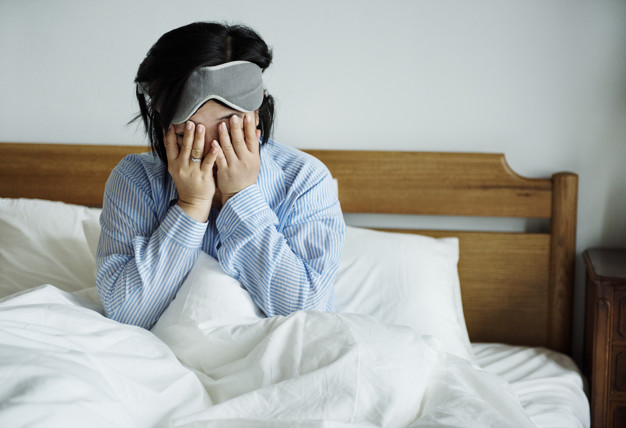 TREATMENT FOR LACK OF SLEEP
TREATMENT FOR LACK OF SLEEP
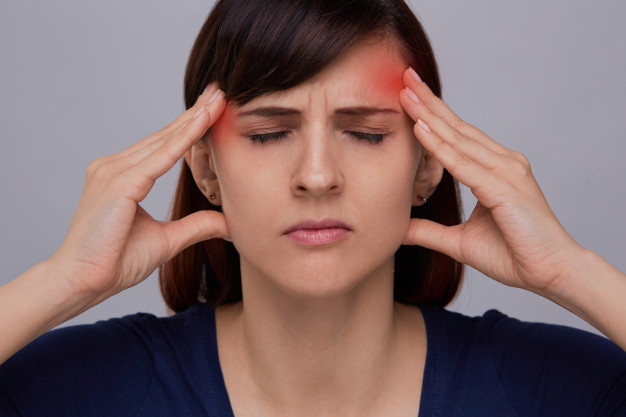 TREATMENT FOR HEADACHE
TREATMENT FOR HEADACHE
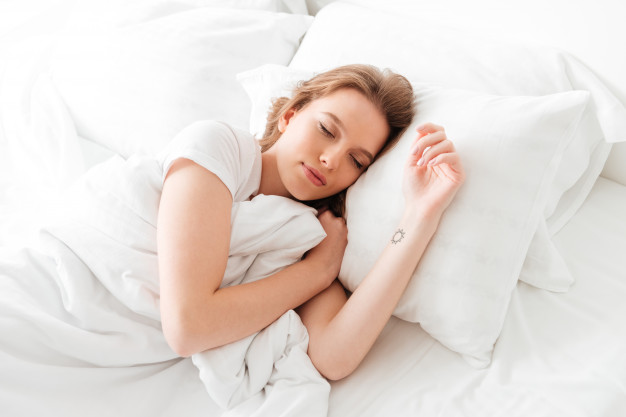 TREATMENT FOR SLEEP BETTER AT NIGHT
TREATMENT FOR SLEEP BETTER AT NIGHT
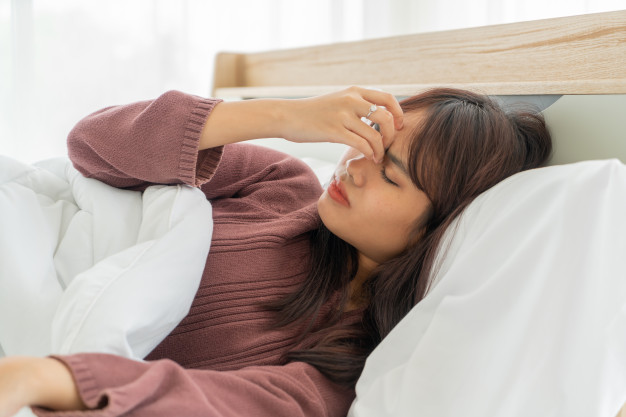 TREATMENT FOR MIGRAINE
TREATMENT FOR MIGRAINE
